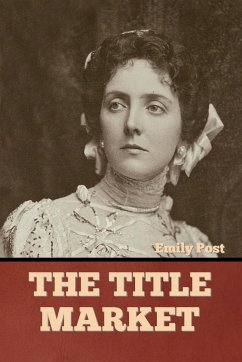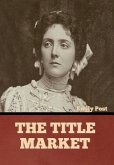Emily Post (née Price; c. October 27, 1872 - September 25, 1960) was an American author, novelist, and socialite, famous for writing about etiquette. Post began to write once her two sons were old enough to attend boarding school. Her early work included humorous travel books, newspaper articles on architecture and interior design, and magazine serials for Harper's, Scribner's, and The Century. She wrote five novels: Flight of a Moth (1904), Purple and Fine Linen (1905), Woven in the Tapestry (1908), The Title Market (1909), and The Eagle's Feather (1910). In 1916, she published By Motor to the Golden Gate - a recount of a road trip she made from New York to San Francisco with her son Edwin and another companion. Post wrote her first etiquette book Etiquette in Society, in Business, in Politics, and at Home (1922, frequently referenced as Etiquette) when she was 50. It became a best-seller with numerous editions over the following decades. After 1931, Post spoke on radio programs and wrote a column on good taste for the Bell Syndicate. The column appeared daily in over 200 newspapers after 1932. In her review of Claridge's 2008 biography of Post, The New York Times' Dinitia Smith explains the keys to Post's popularity: Such books had always been popular in America: the country's exotic mix of immigrants and newly rich were eager to fit in with the establishment. Men had to be taught not to blow their noses into their hands or to spit tobacco onto ladies' backs. Arthur M. Schlesinger, who wrote "Learning How to Behave: A Historical Study of American Etiquette Books" in 1946, said that etiquette books were part of "the leveling-up process of democracy," an attempt to resolve the conflict between the democratic ideal and the reality of class. But Post's etiquette books went far beyond those of her predecessors. They read like short-story collections with recurring characters, the Toploftys, the Eminents, the Richan Vulgars, the Gildings and the Kindharts. In 1946, Post founded The Emily Post Institute, which continues her work. (wikipedia.org)
Hinweis: Dieser Artikel kann nur an eine deutsche Lieferadresse ausgeliefert werden.
Hinweis: Dieser Artikel kann nur an eine deutsche Lieferadresse ausgeliefert werden.








